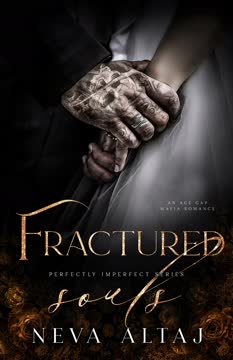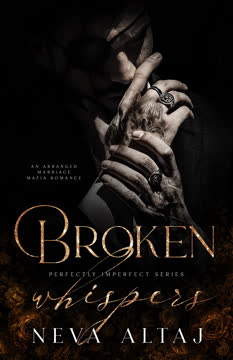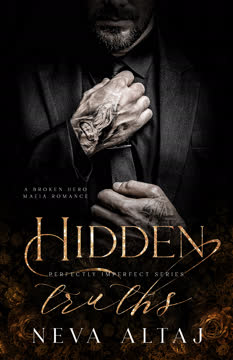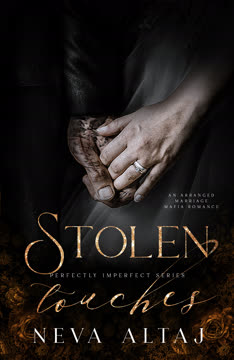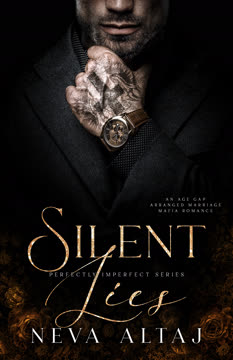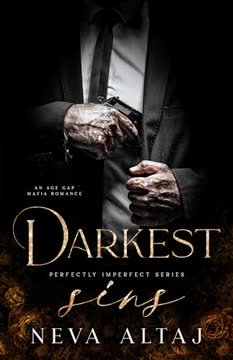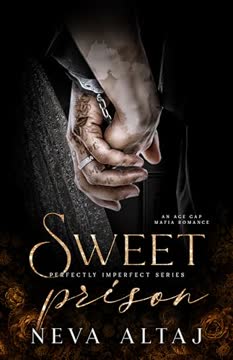Plot Summary
Snowfall and Shattered Innocence
Asya's world is torn apart on a snowy night, her innocence stolen by a stranger who mistakes her for her twin. The pain is physical and emotional, the snowflakes falling as silent witnesses to her trauma. Her attacker's words haunt her, and her desperate flight through the cold ends in recapture and drug-induced oblivion. The music that once brought her comfort is silenced, replaced by terror and numbness. This night marks the beginning of her captivity, the shattering of her sense of self, and the start of a journey through darkness that will test the limits of her endurance and hope.
Captivity's Cold Embrace
Asya awakens in a world of forced prostitution, where drugs are both leash and escape. The routine is mechanical: pills before clients, more after, all to keep her compliant. She learns to fake addiction, hiding her withdrawal and plotting escape. The other girls are both comrades and reminders of her own fate. The rules are simple—obey, or face worse. Her captors strip her of her name, her glasses, her dignity. Yet, a stubborn ember of resistance remains, even as she questions her own worth and strength. The coldness of her new reality is matched only by the numbness she cultivates to survive.
Escape and Overdose
A client's sudden death offers Asya a fleeting chance. In the chaos, she flees, only to be injected with drugs as she runs. Disoriented, naked, and alone, she stumbles into the street, collapsing in front of a car. Pavel, a Bratva club manager, finds her and rushes her to a doctor. She hovers between life and death, her body wracked by withdrawal and trauma. The doctor's examination confirms the extent of her abuse, and Pavel, moved by a protective instinct he doesn't understand, takes her into his home. For the first time in months, Asya is out of captivity, but the road to recovery is just beginning.
Shelter in a Stranger
Pavel's apartment becomes Asya's refuge. He is careful, gentle, and patient, offering her space and safety without demands. Asya clings to him, her trauma manifesting in an intense need for proximity and reassurance. She struggles with basic decisions, paralyzed by anxiety and self-loathing. Pavel, haunted by his own past of abandonment and violence, finds unexpected solace in caring for her. Their connection deepens, built on mutual wounds and the slow rebuilding of trust. The outside world remains a threat, but within these walls, a fragile hope begins to take root.
The Language of Safety
Words are scarce, but touch and routine become Asya's language. She clings to Pavel, following him from room to room, needing his presence to keep the darkness at bay. He learns to ask questions that don't require choices, easing her anxiety. Small victories—making breakfast, taking a shower alone—are celebrated. Pavel's patience is unwavering, his own loneliness soothed by her dependence. Their relationship is unconventional, shaped by trauma, but genuine. Asya's music returns in fragments, a sign that healing, though slow, is possible. Together, they navigate the delicate balance between safety and autonomy.
Withdrawal and Small Victories
Asya's withdrawal is brutal, marked by fever, chills, and emotional volatility. Pavel remains steadfast, comforting her through the worst of it. As she regains clarity, she begins to test her boundaries—choosing what to eat, venturing outside with Pavel's support. Each decision is a battle, but with every small success, her confidence grows. Pavel encourages her, never pushing too hard, always ready to catch her if she falters. Their bond deepens, rooted in shared vulnerability and the slow, painful process of reclaiming control over her life.
Naming the Darkness
Asya begins to articulate her trauma, naming her fears and triggers. She reveals her true identity to Pavel, trusting him with her past and her pain. The revelation that she is the sister of a powerful New York mobster complicates matters, but Pavel's loyalty never wavers. He becomes her advocate, shielding her from the outside world and the expectations of her family. Together, they confront the darkness—her memories, her shame, and the voices that tell her she is broken. Naming the pain is the first step toward healing, and with Pavel's support, Asya begins to believe in the possibility of a future.
Trust, Trauma, and Touch
Physical intimacy is fraught with fear and longing. Asya's body remembers violence, but with Pavel, she learns that touch can be safe, even healing. They move slowly, negotiating boundaries and building trust. Pavel's own scars—emotional and physical—surface, and Asya becomes his comfort as much as he is hers. Their relationship is a dance of vulnerability, each learning to give and receive love without fear. The return of Asya's music, her willingness to play the piano again, marks a turning point. Together, they discover that love, though imperfect, can be redemptive.
The Bratva's Shadow
The criminal world encroaches on their sanctuary. The Bratva's drug investigation intersects with Asya's past, and violence erupts, claiming the life of Pavel's mentor. Grief and rage threaten to consume him, but Asya's presence anchors him. The danger is not just external; the threat of being discovered by her family looms. Pavel must navigate loyalty to his organization, his own code of honor, and his growing love for Asya. The outside world is relentless, but within their shared space, they fight to protect what they have built.
Music as Memory
Asya's return to music is both catharsis and reclamation. The piano becomes her voice, a way to process pain and rediscover joy. Pavel supports her, even buying her a piano so she can play in safety. Music bridges the gap between past and present, sorrow and hope. It is through music that Asya reconnects with herself, and through her playing, Pavel finds peace. Their shared moments at the piano are intimate, transcending words. Music becomes a symbol of survival, resilience, and the possibility of happiness after trauma.
Steps Toward Healing
Asya pushes herself to confront her triggers—venturing into public, shopping for clothes, and eventually returning to the club where her ordeal began. Each step is fraught with anxiety, but Pavel's unwavering support gives her strength. She learns to make choices, however small, and to trust her own judgment. Their relationship matures, moving from dependence to partnership. Healing is not linear, but with each challenge, Asya proves to herself that she is more than her trauma. Together, they celebrate progress, no matter how incremental.
Facing the Past
The past catches up when Asya's family discovers her whereabouts. The reunion is emotional, fraught with guilt, love, and misunderstanding. Asya must confront not only her own pain but also the impact of her disappearance on her brother and sister. Secrets are revealed, blame is assigned, and forgiveness is sought. Pavel, too, must face the consequences of his choices—his decision to keep Asya hidden, his fear of losing her. The process is messy and painful, but necessary. Only by facing the past can they hope to build a future.
Love in the Aftermath
Separation tests their bond. Asya returns to her family, and Pavel spirals into old habits, seeking numbness in violence. Both are haunted by what they have lost, but neither can let go. Communication falters, misunderstandings abound, and the pain of absence is acute. Yet, love endures. When Asya learns of Pavel's self-destruction, she returns, determined to reclaim what they built together. Their reunion is raw, honest, and hard-won. They choose each other, not out of need, but out of love—a love forged in suffering and strengthened by survival.
Vengeance and Closure
With the help of the Bratva, Asya confronts her abuser, choosing to end his life herself. The act is both vengeance and liberation, a final severing of the chains that bound her. Pavel stands by her, offering support without judgment. The organization that trafficked her is dismantled, and the threat is eliminated. Closure is not simple, but it is real. Asya is no longer a victim; she is a survivor, empowered by her choices. The past cannot be erased, but it no longer defines her.
Letting Go, Holding On
Pavel, believing Asya deserves better, lets her go, sacrificing his own happiness for hers. Both struggle with the pain of separation, haunted by what-ifs and regrets. Asya's family, too, must learn to let her make her own choices. The lesson is hard: love is not possession, but freedom. Healing requires both holding on and letting go—of fear, of guilt, of the need to control. In the end, love is measured not by how tightly one clings, but by the willingness to risk loss for the other's happiness.
Separation and Self-Discovery
Time apart forces both Asya and Pavel to confront their own identities. Asya finds purpose in music and helping others, while Pavel battles his demons in the fighting ring. Each must decide what they truly want, independent of the other. The longing is intense, but so is the growth. When they finally reunite, it is as equals—two whole people choosing each other, not out of desperation, but out of genuine love and respect. Their reunion is a testament to the power of healing and the resilience of the human spirit.
The Cage and the Call
Pavel's return to underground fighting is a cry for oblivion, but Asya's arrival at his final match pulls him back from the brink. Her presence, her plea, reignites his will to live. The fight becomes symbolic—a battle not just for survival, but for the future they could share. In the aftermath, they confront their fears, their mistakes, and their love. The cage is both literal and metaphorical, and together, they break free.
Reunion and Reckoning
Their reunion is marked by honesty and vulnerability. Misunderstandings are cleared, apologies made, and promises renewed. Asya's family comes to accept her choices, and Pavel learns to trust in love without fear of abandonment. Together, they redefine what it means to be home, to be safe, to be loved. The past is acknowledged, but it no longer dictates the present. They move forward, hand in hand, ready to face whatever comes next.
Home, Healing, and Hope
Asya and Pavel marry, surrounded by chosen family and friends. Their life is not without challenges, but it is rich with meaning and joy. Asya finds fulfillment in music and helping others heal, while Pavel discovers peace in love and fatherhood. The scars remain, but they are reminders of survival, not defeat. Together, they create a home—a place of safety, acceptance, and hope. Their story is one of resilience, proof that even the most fractured souls can find wholeness in love.
Characters
Asya DeVille
Asya is a young woman whose life is violently upended by abduction, sexual assault, and forced addiction. Her trauma manifests in anxiety, difficulty making decisions, and a desperate need for safety. Yet, beneath her fragility lies a core of resilience and stubbornness. Music is her solace and her voice, a link to her lost self. Her relationship with Pavel is both a lifeline and a crucible, forcing her to confront her pain and reclaim her agency. Asya's journey is one of transformation—from victim to survivor, from dependent to autonomous, from fractured to whole. Her love for Pavel is fierce, but her ultimate victory is in choosing herself and her future.
Pavel "Pasha" Morozov
Pavel is a Bratva club manager with a history of abandonment, poverty, and violence. His exterior is hard, marked by scars and tattoos, but beneath lies a deep well of loneliness and longing for connection. Caring for Asya awakens his protective instincts and offers him a sense of purpose. He is patient, gentle, and self-sacrificing, yet struggles with feelings of unworthiness and fear of loss. Pavel's journey is about learning to love without control, to trust in the possibility of happiness, and to accept that he, too, deserves healing and love. His relationship with Asya is redemptive, teaching him that vulnerability is not weakness.
Arturo DeVille
Arturo is Asya's older brother, a surrogate parent after their parents' deaths and a high-ranking member of the New York Cosa Nostra. His love for Asya is fierce, bordering on overprotective, and her disappearance devastates him. He struggles with guilt, anger, and the need to control, often clashing with Pavel over what is best for Asya. Arturo's arc is about learning to let go, to trust his sister's choices, and to accept that love sometimes means stepping back. His journey mirrors the broader theme of family—its power to both heal and hurt.
Sienna DeVille
Sienna is Asya's identical twin, vibrant and expressive where Asya is reserved. Her own struggles with guilt and grief over Asya's disappearance lead to a suicide attempt, highlighting the ripple effects of trauma. Sienna is both a mirror and a foil for Asya, representing the life that might have been and the unconditional love of family. Her support is crucial in Asya's healing, and her presence underscores the importance of connection and understanding.
Kostya
Kostya is Pavel's friend and colleague in the Bratva, providing moments of levity amid darkness. He is resourceful, supportive, and unafraid to challenge Pavel when necessary. Kostya's loyalty is unwavering, and his actions often bridge the gap between the criminal world and the personal struggles of the protagonists. He represents the possibility of friendship and found family, even in unlikely places.
Roman (Pakhan)
Roman is the head of the Chicago Bratva, a figure of authority and discipline. He is pragmatic, ruthless when necessary, but not without empathy. His decisions shape the environment in which Pavel and Asya must navigate their recovery. Roman's willingness to bend rules for those he cares about highlights the complexities of loyalty, justice, and mercy within the criminal underworld.
Dolly
Dolly is the woman who manages the girls in captivity, administering drugs and enforcing obedience. She is both a victim and perpetrator, complicit in the system that exploits Asya and others. Dolly embodies the banality of evil—the way ordinary people can become instruments of harm. Her presence is a constant reminder of the dehumanizing forces Asya must overcome.
The Rapist ("Robert")
Robert is the man who abducts and assaults Asya, setting the entire narrative in motion. He is manipulative, violent, and remorseless, representing the darkest aspects of human nature. His eventual death at Asya's hands is both justice and catharsis, allowing her to reclaim power and agency. Robert is less a character than a force—a symbol of the evil that must be confronted and defeated.
The Doctor
The unnamed doctor who treats Asya after her escape is a figure of competence and compassion. He provides medical care, psychological insight, and practical advice, often serving as a bridge between the criminal world and the needs of the vulnerable. His presence grounds the narrative, reminding characters and readers alike of the importance of professional help in healing trauma.
Mikhail
Mikhail is responsible for information extraction (torture) within the Bratva. He is a figure of violence, but also of loyalty and principle. His interactions with Pavel highlight the moral ambiguities of their world—the tension between justice and brutality, protection and harm. Mikhail's role underscores the theme that even in darkness, there are lines that can be drawn.
Plot Devices
Dual Healing Arcs
The novel employs a dual healing arc, following both Asya and Pavel as they confront their respective traumas. Their stories mirror and inform each other, creating a dynamic interplay between victim and protector, wounded and healer. This structure allows for deep exploration of psychological recovery, emphasizing that healing is neither linear nor solitary.
Trauma-Informed Romance
The romance is shaped by the realities of trauma—flashbacks, triggers, and the slow rebuilding of trust. Intimacy is negotiated, not assumed, and the narrative resists easy resolutions. Love is not a cure-all, but a context in which healing becomes possible. The story foregrounds consent, communication, and the importance of professional help, subverting traditional romance tropes.
Symbolism of Music and Touch
Music, especially the piano, symbolizes Asya's lost and reclaimed identity. Her ability to play marks stages of recovery, while touch—both harmful and healing—serves as a barometer of trust. These motifs recur throughout, providing emotional resonance and narrative cohesion.
Found Family and Chosen Bonds
The Bratva, for all its violence, functions as a surrogate family for Pavel, while Asya's biological family represents both comfort and conflict. The interplay between found and blood family explores themes of loyalty, belonging, and the limits of protection. The narrative structure alternates between intimate domestic scenes and the broader criminal world, highlighting the importance of community in recovery.
Foreshadowing and Circular Structure
The novel uses foreshadowing—snow, music, touch—to signal both danger and hope. The circular structure, beginning and ending with snow, underscores the journey from victimhood to agency. The return to the site of trauma (the club, the piano, the family home) allows for closure and transformation.
Realistic Portrayal of Recovery
The story resists the temptation to offer quick fixes. Asya's recovery is marked by setbacks, relapses, and the ongoing need for support. The narrative structure reflects this, with chapters devoted to small victories and the persistent challenges of daily life. The use of professional therapy, support from loved ones, and self-advocacy are all depicted as essential components of healing.
Analysis
Fractured Souls is a harrowing yet hopeful exploration of trauma, recovery, and the redemptive power of love. Neva Altaj crafts a narrative that refuses to shy away from the brutal realities of sexual violence, addiction, and psychological aftermath, yet insists on the possibility of healing. The novel's strength lies in its nuanced portrayal of both victim and protector, showing that recovery is neither linear nor solitary. Love is not presented as a magical cure, but as a context in which trust, agency, and self-worth can be rebuilt. The story's use of music, touch, and routine as symbols of healing is particularly effective, grounding the emotional arc in tangible acts. The criminal underworld setting adds layers of danger and moral ambiguity, but ultimately serves to highlight the importance of chosen family and community. The narrative's refusal to offer easy answers—insisting instead on the hard work of therapy, communication, and self-acceptance—makes it both realistic and inspiring. Fractured Souls is a testament to the resilience of the human spirit, a reminder that even the most broken can find wholeness, and that love, when rooted in respect and understanding, can be a force for profound transformation.
Last updated:
Review Summary
Fractured Souls received mixed reviews. Many readers praised the emotional depth, character development, and handling of sensitive topics. The protective relationship between Pavel and Asya was widely appreciated. However, some criticized the age gap, pacing issues, and lack of plot depth. Concerns were raised about the portrayal of trauma and healing. Several reviewers noted similarities to other books, leading to plagiarism accusations. Despite these criticisms, many found the book engaging and looked forward to continuing the series. Overall, it polarized readers with its intense themes and romantic elements.
